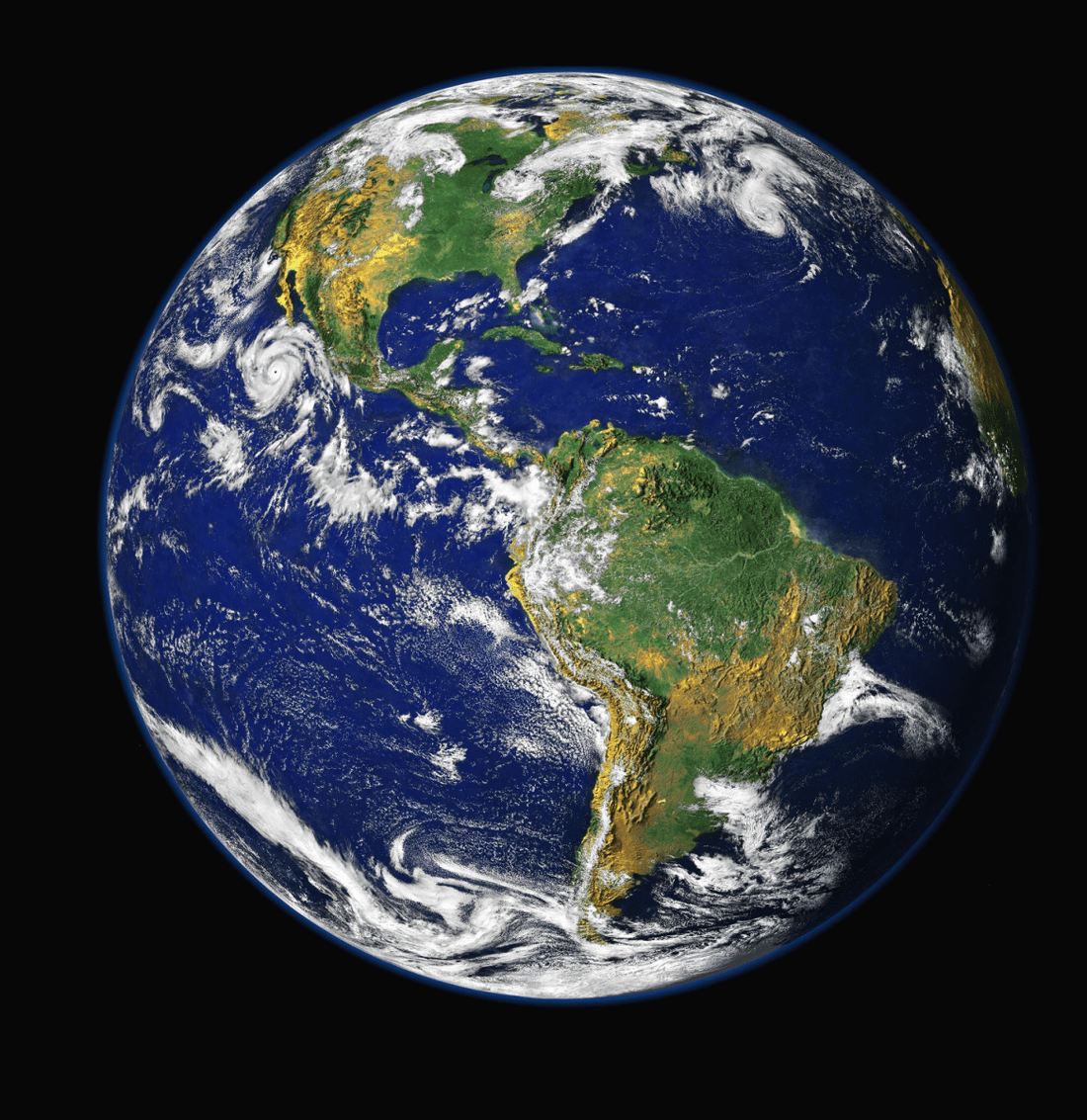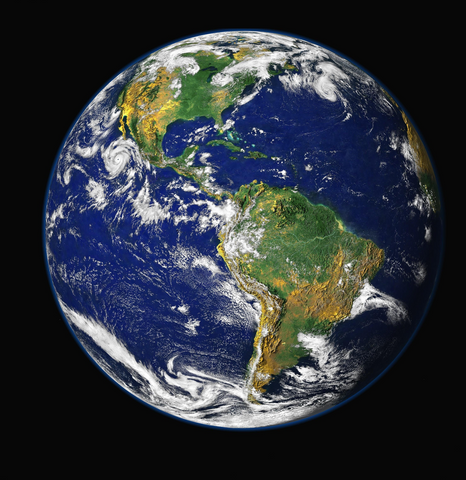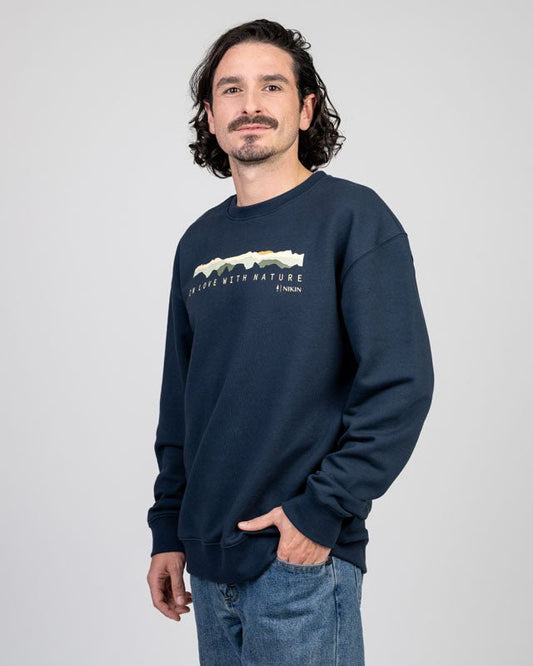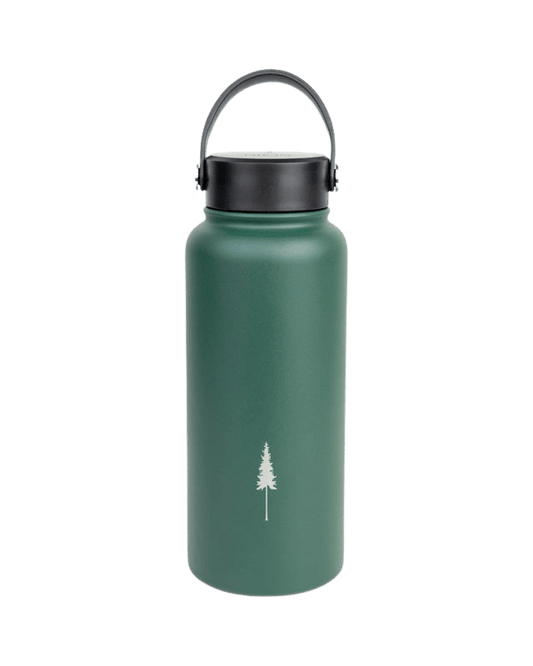The "ecological footprint" is a hot topic and yet many people are unaware of the impact of their own lifestyle on the earth. Some of our everyday habits are among the biggest factors accelerating climate change. But what is the "ecological footprint"?“?
The Western industrialised nations, but also emerging economies such as China or India, are among the biggest climate sinners. The unrestrained overexploitation of the planet's natural resources ensures that climate change and its consequences will soon be irreversible - if they are not already. But we don't have Planet B. That's why we at NIKIN want to contribute in every possible way to raising awareness of what we can do to protect our environment. Each and every one of us.
But how can we live in a way that protects the earth's ecosystem? And can you measure whether you are really living sustainably? Yes, you can. That's what the so-called "ecological footprint" is for!
What is the "Ecological Footprint"?
In English, it is called Ecological Footprint - meaning the biologically productive area required to maintain a person's standard of living. This includes not only the supply of food and water, but also the provision of energy, the carbon dioxide released directly or indirectly by that person, and also the disposal of waste. This required area is compared to the globally or regionally available area measured by the number of inhabitants. The concept of the Ecological Footprint is not new - it was already developed in 1994, and since 2003 there has been a proper Global Footprint Network. The protection of our planet is actively supported by renowned researchers and Nobel Prize winners!
How the "Ecological Footprint" is calculated
The Ecological Footprint can be calculated based on a person's lifestyle. Basically, it is a question of how much usable area would be necessary to continue to maintain the lifestyle to which the person in question is accustomed. This is contrasted with the area that is actually available and also biologically usable - i.e. the surface of the earth, minus built-up regions, but also deserts, ice surfaces or mountains.
Anyone who wants to take the trouble to calculate their own ecological footprint can do so: there is a regular footprint calculator online for this purpose. Simply answer the questions and then be amazed. Because despite all our attentiveness, even the most environmentally conscious of us usually still has a lot of room for improvement...
How big are our footprints?
If you look at the average ecological footprint on the continents of this world, you will quickly realise that the real climate sinners are North Americans. Their footprint is greater than 8 - a really drastic value and still twice as much as in Europe, where we still live on a fairly large footprint. At least ecologically.
In contrast, the people in Africa live an almost exemplary life, with an ecological footprint of 1.4. No wonder, since many Africans still live a traditional, sustainable life. Unfortunately, this way of life is under threat. Many people in Africa are no longer able or willing to live in the traditional way. Drought, unrest, but also new patterns of consumption are changing behaviour here and will ensure that Africans will soon also appear "one size bigger".

How can you reduce your own ecological footprint?
Each of us can significantly reduce our ecological footprint in various ways. Many of them are not difficult at all and will soon become routine.
- Use less energy! Switch off electrical appliances properly and do not let them run unnecessarily.
- Always use energy-saving light bulbs for lamps. This can save an enormous amount of electricity.
- Separate waste carefully - and create less waste in the first place.
- Buying regionally and fresh helps to save long transport routes and thus energy expenditure. It also helps local producers!
- Ditch the car and walk or get out the bike more instead. And as for air travel... as painful as it is, they really pack a punch!
- Consume less, recycle more - buy only sustainable and fair clothing and appliances, or even buy second-hand and use your own things for a really long time instead of replacing them with the latest model every year.
These are just a few examples that quickly make clear how many possibilities there are to live on a less large foot. Because until now, we all still sin far too much.
Who are the biggest climate sinners?
What hardly anyone notices in view of the debate about exhaust gases and CO2 emissions from cars: there are much bigger climate sinners (without wanting to take up the cudgels for all the SUVs on European roads). Above all, global meat production is a crime against the world's climate. Large herds of cattle need grazing land and feed. In order to provide this, forest land is cut down and soya is grown instead. In addition, the digestive gases emitted by cattle increase the world's CO2 emissions quite considerably. It is therefore worthwhile to reconsider one's own meat consumption, to minimise it and to consume consciously and, if possible, only locally.
But the production of biofuel, for example from rapeseed or soy, also falls into this category, and for similar reasons.
Things must change. And it has to be now!
The truth is - and you have to make this clear to yourself - that there is no way around a little sacrifice. We have all lived very well for a very long time - and above our means. Now the bill is being presented. If we do not manage to change our habits, we will not be accountable to our children and grandchildren.
That's why we at NIKIN strive not only privately, but also with our project to ensure that the earth remains as beautiful and livable as it still is. With every purchase from us, you donate to the planting of a Tree through our partner OneTreePlanted. This will not change the world overnight - but it is a start. And you are part of it!





















